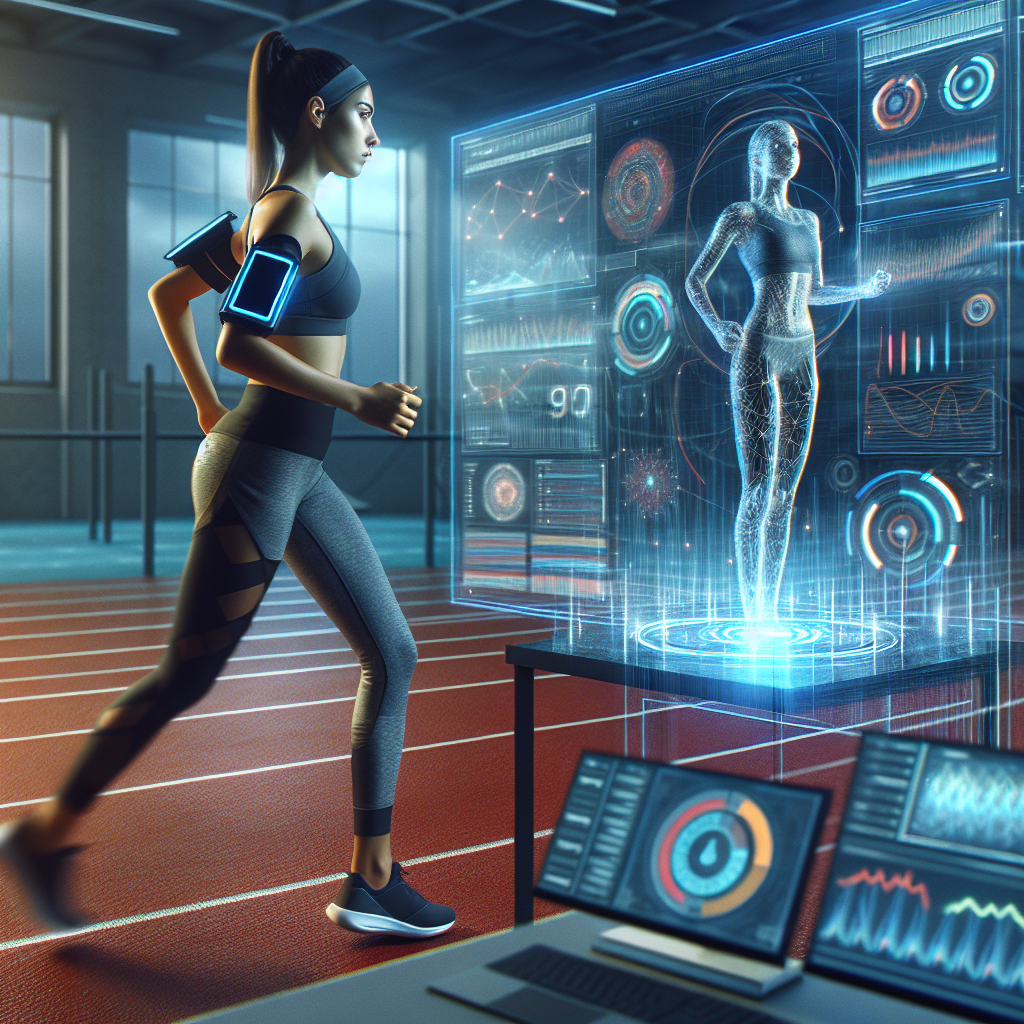Artificial Intelligence (AI) has been making significant strides in various industries, including sports. From enhancing athletic performance to revolutionizing training techniques, AI is changing the way athletes train, compete, and recover. In this article, we will explore the impact of AI in sports and how it is transforming the world of athletics.
Enhancing Athletic Performance
One of the key ways AI is enhancing athletic performance is through the use of wearable technology. Wearable devices such as smartwatches, fitness trackers, and sensors have become increasingly popular among athletes as they provide real-time data on performance metrics such as heart rate, speed, distance, and more. AI algorithms analyze this data to provide insights into an athlete’s performance, helping them track progress, identify areas for improvement, and optimize their training regimen.
For example, AI-powered wearable devices can track an athlete’s movement patterns during training sessions or competitions. By analyzing this data, coaches and trainers can identify biomechanical inefficiencies or potential injury risks and provide personalized feedback to help athletes improve their technique and performance.
In addition to wearable technology, AI is also being used to optimize training programs and strategies. AI algorithms can analyze vast amounts of data, such as training schedules, nutrition plans, and recovery protocols, to create personalized training programs tailored to an athlete’s specific needs and goals. This not only helps athletes maximize their performance but also reduce the risk of injuries and improve overall well-being.
Furthermore, AI is being used to enhance sports analytics and scouting. By analyzing game footage, performance data, and other relevant information, AI algorithms can provide valuable insights into opponents’ strategies, strengths, and weaknesses, helping coaches and teams develop more effective game plans and strategies.
Training Techniques
AI is revolutionizing training techniques in sports by providing athletes with personalized, data-driven insights to optimize their performance. One example of this is the use of virtual reality (VR) technology in sports training. VR allows athletes to simulate game scenarios, practice plays, and improve decision-making skills in a safe and controlled environment. By immersing athletes in realistic training scenarios, VR technology helps them develop muscle memory, improve reaction times, and enhance overall performance.
AI-powered coaching platforms are also changing the way athletes train. These platforms use AI algorithms to analyze an athlete’s performance data and provide personalized feedback and recommendations for improvement. By tracking performance metrics, monitoring progress, and suggesting adjustments to training programs, AI coaching platforms help athletes reach their full potential and achieve their goals more efficiently.
Furthermore, AI is being used to enhance recovery and injury prevention in sports. By analyzing data on an athlete’s sleep patterns, nutrition intake, and training load, AI algorithms can provide insights into recovery needs and recommend strategies to optimize recovery and prevent injuries. This holistic approach to athlete care helps athletes stay healthy, perform at their best, and prolong their careers.
FAQs
Q: How is AI being used in sports performance analysis?
A: AI is being used in sports performance analysis to analyze data on athletes’ movements, techniques, and performance metrics. By processing this data, AI algorithms can provide valuable insights into an athlete’s strengths, weaknesses, and areas for improvement, helping coaches and trainers develop personalized training programs and strategies.
Q: How can AI help athletes improve their technique?
A: AI can help athletes improve their technique by analyzing data on their movement patterns, biomechanics, and performance metrics. By identifying inefficiencies or errors in technique, AI algorithms can provide personalized feedback and recommendations for improvement, helping athletes optimize their movements and enhance their performance.
Q: How does AI enhance sports analytics and scouting?
A: AI enhances sports analytics and scouting by analyzing vast amounts of data, such as game footage, performance metrics, and opponent information. By processing this data, AI algorithms can provide valuable insights into opponents’ strategies, strengths, and weaknesses, helping coaches and teams develop more effective game plans and strategies.
Q: How is AI used in injury prevention and recovery in sports?
A: AI is used in injury prevention and recovery in sports by analyzing data on athletes’ sleep patterns, nutrition intake, training load, and more. By processing this data, AI algorithms can provide insights into recovery needs and recommend strategies to optimize recovery, prevent injuries, and enhance overall well-being.
In conclusion, AI is revolutionizing the world of sports by enhancing athletic performance, optimizing training techniques, and improving overall athlete well-being. From wearable technology to AI coaching platforms, the possibilities for AI in sports are endless. As technology continues to evolve, we can expect to see even more innovative applications of AI in sports, ultimately helping athletes reach new heights of success and performance.

